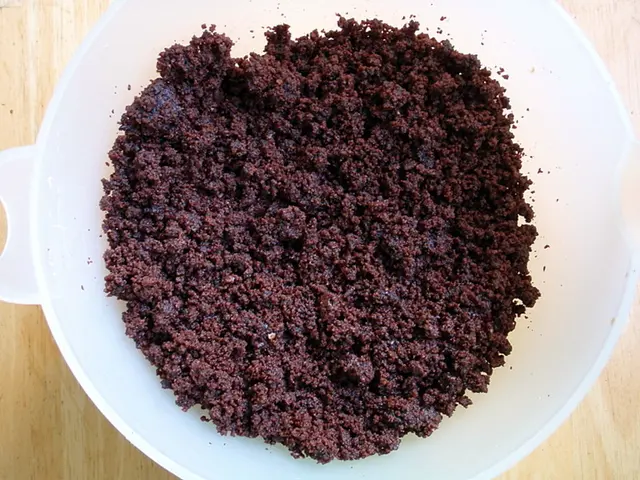MRSA Colonization: Spread, Safeguarding, and Further Insights
Methicillin-resistant Staphylococcus aureus (MRSA) colonization refers to the presence of antibiotic-resistant MRSA bacteria in or on the body without causing an overt infection. Individuals with MRSA colonization can carry the bacteria without exhibiting symptoms.
MOIST AREAS OF THE BODY: MRSA can be found in the skin in moist areas, including the nose, throat, groin, armpits, skin folds, and perineal area.
CONCERN FOR HEALTHCARE PROFESSIONALS: Although it does not cause symptoms, MRSA colonization can pose a concern for healthcare professionals due to the potential for unknowing transmission and the subsequent infection, particularly in healthcare settings.
ANTIBIOTIC-RESISTANT: MRSA infection is considered harmful because it is caused by a strain of Staphylococcus aureus that is resistant to many common antibiotics, primarily methicillin and related drugs like penicillin, amoxicillin, and oxacillin. This resistance makes it challenging to treat and potentially more dangerous, especially in vulnerable people.
SPREAD OF MRSA: MRSA can spread through close contact with individuals who have an MRSA infection or colonization, sharing contaminated equipment or supplies, and environmental contamination of household surfaces.
RISK OF INFECTION: Colonization can sometimes lead to infection, particularly if the immune system is weakened or there's a wound. To minimize the risk, follow hygiene guidelines, such as regular handwashing and showering with antiseptic soap, maintaining clean and covered wounds, avoiding sharing personal items, and practicing thorough laundry and cleaning routines.
SCREENING IN MEDICAL SETTINGS: In medical settings, healthcare professionals may screen individuals for the presence of MRSA bacteria, especially those undergoing surgery. LED swabbing of common infection areas is used for detection, and if colonization is detected, nasal cream or spray, body wash, and shampoo may be prescribed to reduce the bacteria. Usage typically lasts for 5 to 10 days.
SIGNS OF INFECTION: Signs of an MRSA infection include pain, redness, pus, swelling, and a warm sensation in the affected area, especially at sites with cuts or abrasions.
PREVENTION AND TREATMENT: By adhering to hygiene guidelines at home and medical facilities, individuals can help reduce the likelihood of MRSA colonization and infection. It's crucial to note that MRSA infections do not typically resolve on their own without treatment. Proper medical management, including targeted antibiotics and sometimes surgical procedures, is necessary to address the infection and avoid severe complications.
For further information on MRSA, consider the following questions:
- Does MRSA go away on its own?
- Does chlorine kill MRSA?
- Will I always carry MRSA bacteria?
By shedding light on the nature of MRSA and its potential complications, individuals can make informed decisions to protect themselves and those around them.
In addition to the skin, MRSA can also affect other parts of the body, such as the respiratory, digestive, eye, and hearing systems. Proper hygiene practices are essential for maintaining overall health and wellness, including fitness and exercise, eye health, hearing, and sexual health. Chronic diseases like cancer and autoimmune disorders can become more severe if an individual is infected with MRSA. Mental health and men's health are also significant considerations since stress and hormonal imbalances can weaken the immune system, making one more susceptible to infections.
Notably, skin-care routines can play a role in preventing MRSA as well. Aging contributes to skin's vulnerability, so it's crucial to be vigilant about skincare practices, especially for women during menopause. Proper nutrition is key for boosting immunity, helping the body combat infections.
When addressing MRSA, it's essential to recognize that treatment is necessary to avoid complications. Contrary to some beliefs, MRSA does not go away on its own without treatment. Chlorine can kill some strains of MRSA but not all, so it's important to clean surfaces thoroughly to eliminate the bacteria. One may not always carry the MRSA bacteria, butscreening is recommended in medical settings to ensure early detection and treatment.
On a broader scale, advances in science and therapies and treatments have led to the development of new antibiotics and alternative treatments like CBD for managing and treating MRSA infections. Despite this progress, Neurological disorders and skin conditions like eczema can also exacerbate the risk of MRSA infection, making it a multi-faceted health issue that requires ongoing research and effective prevention strategies. Effective parenting involves not only taking care of the physical needs of children but also educating them about the importance of hygiene and seeking medical attention when necessary. Cardiovascular health, a crucial aspect of overall wellness, is another factor that can influence the body's ability to fight infections, making it vital for individuals to prioritize heart health as well.








